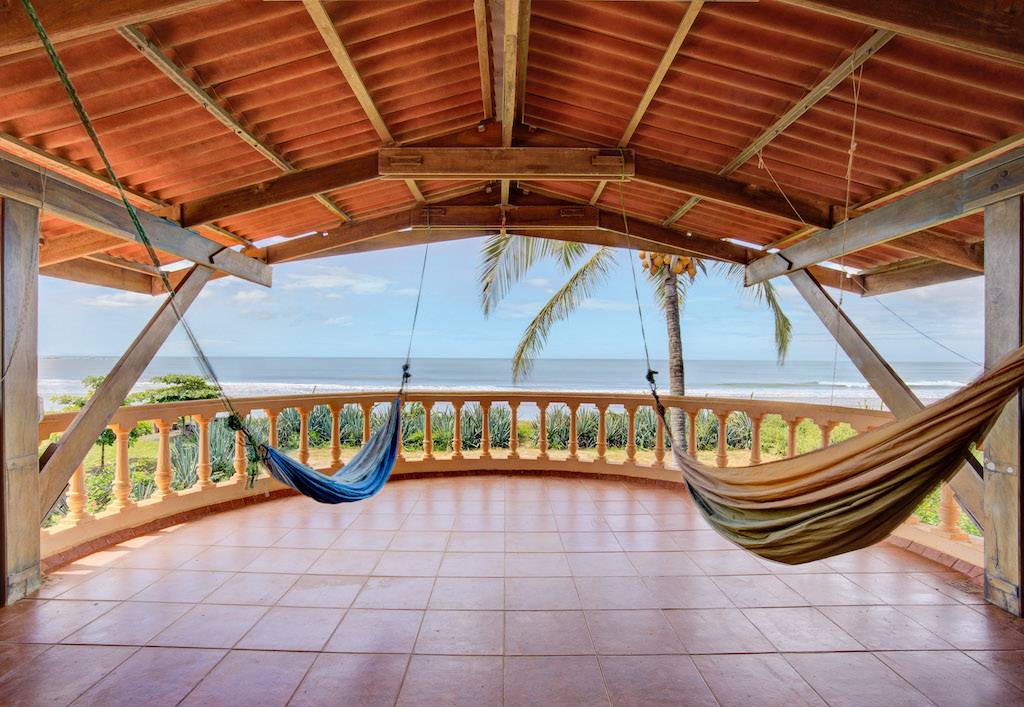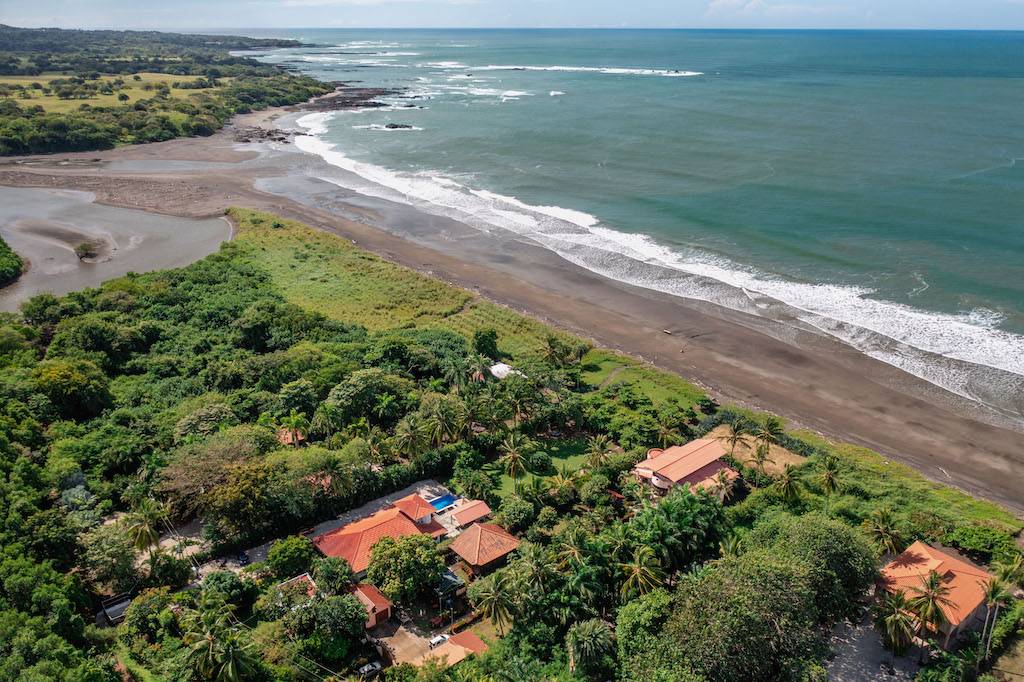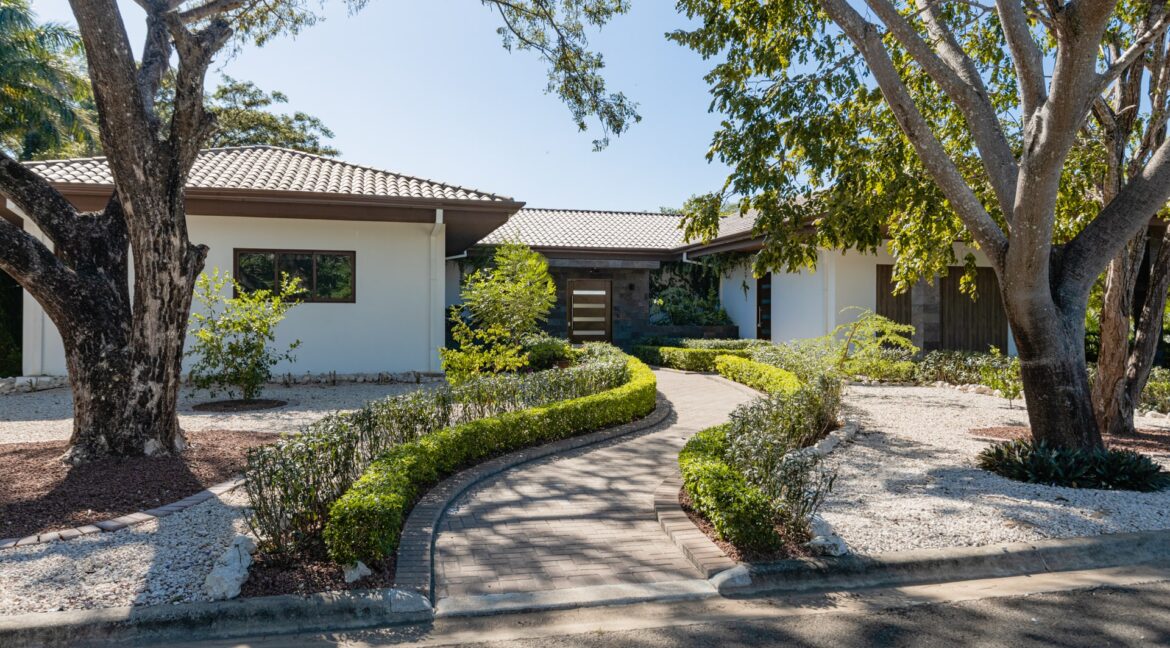Buying a home – especially a home abroad – is simultaneously one of the most important and most exciting decisions you’ll make in life. So, as with any life-altering decision, you’re doing your research. You’re knocking out your initial due diligence. And you’re at the point where you’re running the numbers, which brought you here: How are Costa Rica closing costs calculated? What’s included (and, what’s not?)? And, who pays?
Closing costs in Costa Rica are typically higher than what you might see in the United States or Canada. There are a few reasons for that, not the least of which is how Costa Rica collects taxes. Annual property taxes are very low (0.25% to about 0.55%, depending on declared value), so property transfer taxes are higher.
That said, calculations are straightforward and all components of Costa Rica closing costs are calculated as a percentage of the property’s value. Which brings us to an important side note: In the past (and to some extent, still), there was a bit of a wink-wink culture regarding property tax evasion. Costa Rica is working to remedy this issue. Our best advice is to keep your transactions above board.
With all that said, let’s jump into Costa Rica closing costs, their calculation, their total cost, and who pays. For practical purposes, we’ll use a $300,000 property purchase as our basis throughout this post.
Costa Rica Closing Costs: How They’re Calculated

Can you put a price on paradise? You sure can. Costa Rica closing costs will run you approximately 3.5% of your purchase price or registered property value (whichever is higher).
In Costa Rica, closing costs are calculated as a total of four sub-categories:
- Transfer Taxes
- National Registry & Documentary Stamps
- Legal Fees
- VAT/IVA
These categories are almost exclusively calculated as a percentage value of your total property price. So, while there’s no set price for closing costs, they’re fairly easy to calculate.
Notably, to combat the above-referenced transfer tax evasion, Costa Rica has taken to basing these percentages on the higher of two possible values: either on the contracted sales price or the registered fiscal value. You’ll see what we mean, in the next section:
1. Transfer Taxes (1.5%)
In Costa Rica, transfer taxes are calculated as a set percentage: 1.5% of either the property’s fiscal value OR the contract price, whichever is higher.
In other words, if the property’s registered fiscal value is the equivalent of $300,000 but the contract price is $200,000, transfer taxes will be calculated at 1.5% of $300,000. Likewise, if the registered fiscal value is the equivalent of $200,000 but the contract price is $300,000, transfer taxes will still be calculated at 1.5% of $300,000.
Total Based on our $300K Example: $4,500
2. National Registry + Documentary Stamps
When you live in Costa Rica, you quickly learn that official stamps are required for almost all things legal. That goes sextuple for home-buying legalities.
This sub-category of Costa Rica closing costs hinges on six elements:
- National Registry Stamps (0.5%)
- Agrarian Fees (0.15%)
- Fiscal Stamps (under $2)
- National Archive Fees (under $1)
- Costa Rican Bar Association Fees (under $100)
- Municipal Fees (0.2%)
Some of these fees are nominal (National Archive fees are less than 5¢ – yes, less than a U.S. nickel), while others (ex. Municipal fees and National Registry stamps) are calculated as a percentage of the total sale and can be substantial.
Total Based on our $300K Example: $2,410, calculated as: $1,500 (National Registry) + ¢190,500 (Agrarian) + ¢625 (Fiscal Stamps) + ¢20 (National Archives) + ¢5,000 (Bar Association) + ¢381,000 (Municipal Fees)
3. Legal Fees
Two more fun facts about Costa Rica? The first: Costa Rican law loves a good sliding scale of fees. The second: Only lawyers can become notaries and, in fact, notaries are a professional step up from lawyers.
Side note (because it’s important to home-buying and to legalities in Costa Rica, generally): To become a public notary, a lawyer must be part of the Costa Rican Bar Association (el Colegio de Abogados) and must first practice for a minimum two years; from there, s/he may study and apply for an advanced legal degree in notary and registry law. In other words, a Public Notary in Costa Rica is a type of attorney who specializes in property transfer.
In practical application, this means that only a notario público, or public notary, is legally empowered to transfer property, such as a home purchase. If you don’t already have a lawyer, try to choose a firm (un bufete) that has at least one notary public. Over time, this will make your legal life in Costa Rica infinitely easier.
As far as Costa Rica closing costs, the cost of a notary public’s services is calculated based on a pre-established, non-negotiable sliding fee scale:
- Up to 10,000,000 Colones: 2.0%
- 10,000,001 to 15,000,000: 1.50%
- 15,000,001 to 30,000,000: 1.25%
- 30,000,001+: 1.00%
The easy way to think of this is that you’ll pay about $725 (based on a ¢640 to $1 exchange rate) in tax for the first ¢30M, and then an additional 1% of any amount over ¢30M.
Total Based on our $300K Example: Approximately $3,300, calculated as: ¢200,000 (first ¢10M) + ¢75,000 (¢10M-¢15M) + ¢187,500 (¢15M-¢30M) + ¢1,600,000 (¢30M to about ¢190.5M, the equivalent to $300,000).
4. VAT/IVA (13% Value-Added Tax)
Additionally, a 13% VAT (known in Costa Rica as IVA or I.V.A.) is added to all legal fees and escrow services. This is by law and applies to almost all services in and throughout Costa Rica.
Notably, this percentage is not calculated based on your property cost. Or, it is, but only in a roundabout way: Legal fees are calculated based on the above-referenced sliding scale, and VAT fees are calculated at 13% of your legal fees. Your notary public does not pocket these fees; they are remitted directly to the government, on a monthly basis.
Total Based on our $300K Example: $429 (13% of $3,300)
Total Transfer/Closing Costs (based on our $300K example): Approximately $10,639
5. Additional Costs
There may be additional costs associated with your purchase, including escrow service (under $500, typically), a holding corporation (optional), due diligence, topography studies, promissory notes, capital gains tax, and others.
While these are not calculated as official closing costs in Costa Rica, they’re something you should be aware of.
Costa Rica Closing Costs: Who Pays?

In Costa Rica, the buyer typically pays for closing costs. The upside: The seller traditionally covers real estate commissions.
In Costa Rica, closing costs are traditionally paid by the buyer. (In turn, the seller pays real estate commissions.)
That said, it’s becoming more common for buyers and sellers to come to a mutual agreement to share closing cost fees. Rule of thumb: If it’s a buyer’s market (or if you’re considering a property that’s been on the market for a while), you’ll have greater negotiating power regarding closing costs.
Want to run the numbers? This closing costs calculator is incredible helpful!
Dreaming of a Home in Costa Rica?
We know about a lot more than just closing costs! At Blue Water Properties, we’re bilingual, bicultural, and seriously experienced. And we put you first. So, whether you want a little bit of help calculating property transfer fees or are looking a little broader – from raising a family in Costa Rica to investing in a business, we’re here to help.
So, go ahead. Imagine building your dream home, condo, vacation home, or investment property – what is most important to you? Are you a part-time or full-time owner? What’s your timeframe? Where does your budget fall?
Please, get in touch. We’re sticklers for responding within 24 hours. Yes, even if you’re reading this post into the wee hours; we’ll have more information to you on that dream, within the day! And we look forward to it!
At Blue Water Properties of Costa Rica, we’re proud to offer some of the best Costa Rica real estate. We have both condos and homes, land, and businesses for sale.


